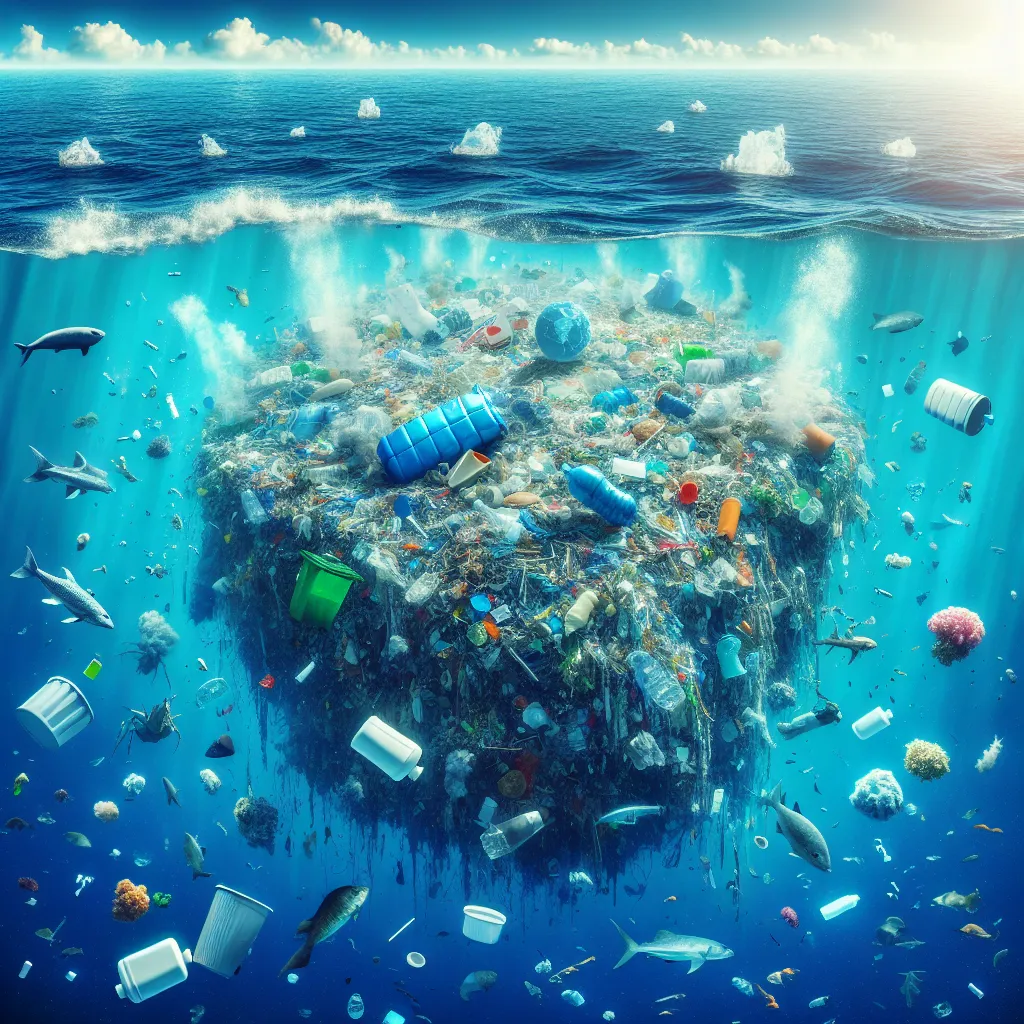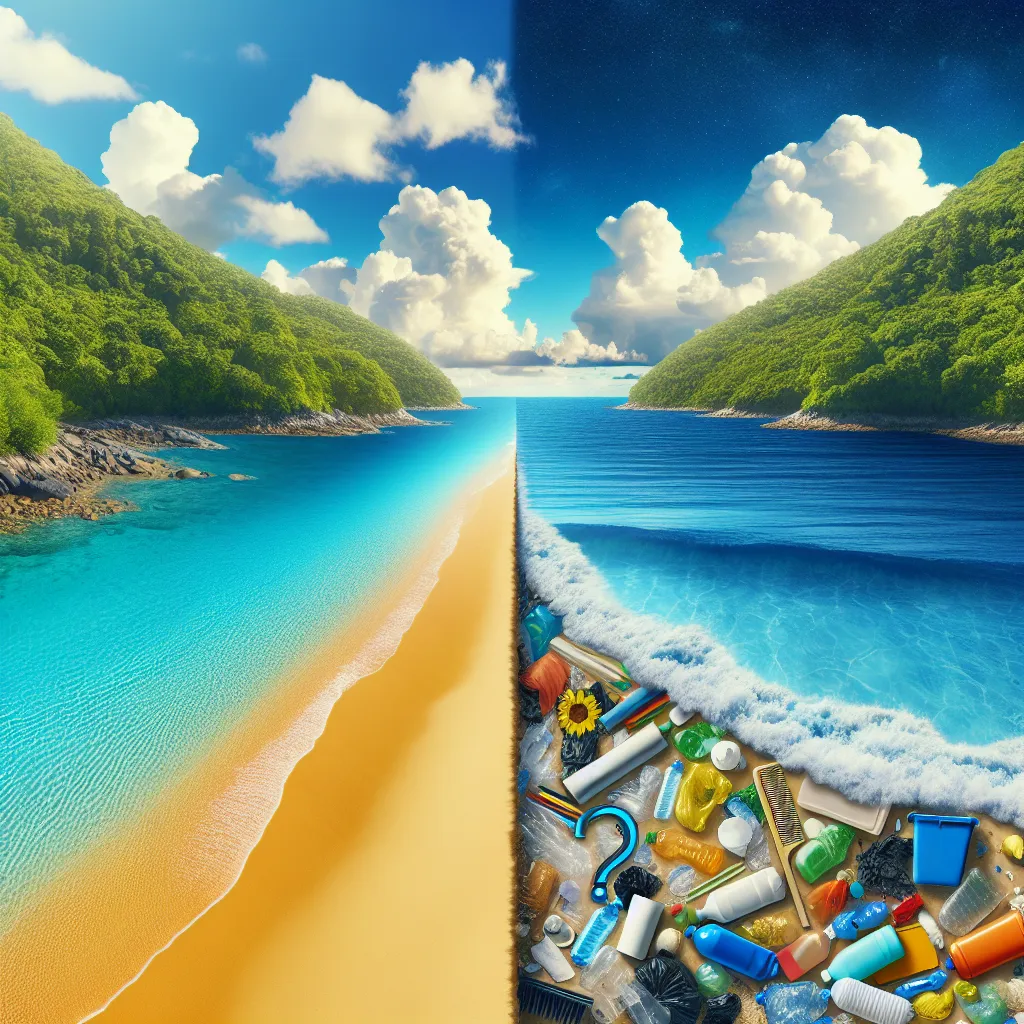Single-use plastics have become a hot topic in recent years, and it’s no surprise that this issue has made its way into IELTS Writing Task 2 questions. The debate over banning single-use plastics globally is a complex and relevant topic that IELTS candidates should be prepared to discuss. In this article, we’ll explore this subject through sample essays for different band scores, providing you with valuable insights and practice material.
Nội dung bài viết
Analyzing the Topic
The question of whether there should be a global ban on single-use plastics is likely to appear in future IELTS tests due to its relevance to environmental issues and global policies. It’s a topic that combines elements of environment, economics, and international cooperation, making it ideal for testing a candidate’s ability to present a well-rounded argument.
Let’s examine a potential IELTS Writing Task 2 question on this topic:
Some people believe that there should be a worldwide ban on single-use plastics to protect the environment. Others argue that such a ban would be impractical and economically damaging. Discuss both views and give your own opinion.
Analyzing the Question
This question requires you to:
- Discuss arguments in favor of a global ban on single-use plastics
- Discuss arguments against such a ban
- Present your own opinion on the matter
Remember to address all parts of the question and provide a balanced discussion before stating your personal view.
Sample Essay 1 (Band 8-9)
Single-use plastics have become a significant environmental concern in recent years, prompting debates about the necessity of a global ban. While some argue that such a measure is crucial for environmental protection, others contend that it would be impractical and economically detrimental. This essay will examine both perspectives before offering a personal viewpoint.
Proponents of a worldwide ban on single-use plastics argue that it is essential for preserving our planet’s ecosystems. Plastic pollution has reached alarming levels, with millions of tons of plastic waste entering our oceans annually, harming marine life and potentially entering the human food chain. A global ban would force industries and consumers to adopt more sustainable alternatives, significantly reducing plastic waste and its associated environmental impacts. Moreover, a unified approach would prevent the shifting of plastic production to countries with lax environmental regulations, ensuring a level playing field for all nations.
 Plastic Ocean Pollution
Plastic Ocean Pollution
On the other hand, opponents of such a ban argue that it would be challenging to implement and could have severe economic consequences. The plastics industry employs millions of people worldwide and contributes significantly to many national economies. A sudden ban could lead to job losses and economic instability in certain regions. Additionally, many essential products, particularly in the medical field, rely on single-use plastics for hygiene and safety reasons. Finding suitable alternatives for all applications could be time-consuming and costly, potentially impacting public health and safety in the short term.
In my opinion, while a complete and immediate global ban on single-use plastics may be impractical, a phased approach towards reduction and eventual elimination is both necessary and achievable. Governments should collaborate to set ambitious targets for plastic reduction, invest in research and development of sustainable alternatives, and implement strict regulations on plastic production and disposal. This gradual transition would allow industries to adapt, minimizing economic disruption while still addressing the urgent need to protect our environment.
In conclusion, the debate over banning single-use plastics globally is complex, with valid arguments on both sides. However, the long-term environmental benefits of reducing plastic pollution outweigh the short-term economic challenges. A coordinated international effort to phase out single-use plastics, coupled with investment in sustainable alternatives, offers the most balanced and effective solution to this pressing global issue.
(Word count: 374)
Explanation of Band 8-9 Score
This essay demonstrates the characteristics of a high-scoring IELTS Writing Task 2 response:
- Task Achievement: The essay fully addresses all parts of the task, discussing both views and providing a clear personal opinion.
- Coherence and Cohesion: Ideas are logically organized with clear progression throughout the essay. Paragraphs are well-linked, and cohesive devices are used effectively.
- Lexical Resource: A wide range of vocabulary is used accurately and appropriately, with some less common phrases (e.g., “lax environmental regulations”, “phased approach”).
- Grammatical Range and Accuracy: The essay uses a variety of complex structures accurately, with only minor errors, if any.
Sample Essay 2 (Band 6-7)
These days, there is a big debate about whether we should ban single-use plastics all over the world. Some people think it’s a good idea to protect the environment, but others say it would cause problems for the economy. In this essay, I will discuss both sides and give my opinion.
On one hand, banning single-use plastics could really help the environment. We all know that plastic pollution is a big problem, especially in the oceans where it kills animals and makes the water dirty. If we stop using things like plastic bags and straws, we can reduce this pollution a lot. Also, if all countries agree to ban these plastics, it would be fair for everyone and stop companies from just moving their factories to places with less strict rules.
However, some people argue that a global ban would be hard to do and might hurt the economy. Many people work in the plastic industry, and if we ban single-use plastics, they might lose their jobs. This could be really bad for some countries where plastic manufacturing is important. Another problem is that we use single-use plastics for many important things, like in hospitals. It might be difficult and expensive to find other materials that work as well.
In my opinion, I think we should try to reduce single-use plastics, but maybe not ban them completely right away. Governments could make rules to use less plastic and encourage companies to find better materials. We could also educate people about why it’s important to use less plastic. This way, we can help the environment without causing too many problems for the economy.
To conclude, the issue of banning single-use plastics is complicated. While it would be good for the environment, it could also cause some economic problems. I believe the best solution is to gradually reduce plastic use and find better alternatives over time.
(Word count: 309)
Explanation of Band 6-7 Score
This essay demonstrates the characteristics of a mid-range IELTS Writing Task 2 response:
- Task Achievement: The essay addresses all parts of the task, presenting both views and a personal opinion, but with less depth and development compared to the Band 8-9 essay.
- Coherence and Cohesion: The essay is generally well-organized, but the ideas could be more fully developed. Some cohesive devices are used, but not always with full flexibility.
- Lexical Resource: The vocabulary used is adequate for the task, but lacks the sophistication and range seen in higher-scoring essays. Some attempts at less common vocabulary are made.
- Grammatical Range and Accuracy: A mix of simple and complex sentence structures is used, with generally good control. There are some errors, but they do not impede communication.
Key Vocabulary to Remember
- Single-use plastics (noun phrase) – /ˈsɪŋɡl juːs ˈplæstɪks/ – Plastic items intended to be used only once before being discarded
- Environmental impact (noun phrase) – /ɪnˌvaɪrənˈmentl ˈɪmpækt/ – The effect of human activities on the natural world
- Sustainable alternatives (noun phrase) – /səˈsteɪnəbl ɔːlˈtɜːnətɪvz/ – Products or practices that can be maintained without depleting natural resources
- Economic ramifications (noun phrase) – /ˌiːkəˈnɒmɪk ˌræmɪfɪˈkeɪʃnz/ – The consequences or effects on the economy
- Phased approach (noun phrase) – /feɪzd əˈprəʊtʃ/ – A strategy of implementing changes gradually over time
- Ecosystem (noun) – /ˈiːkəʊˌsɪstəm/ – A biological community of interacting organisms and their physical environment
- Biodegradable (adjective) – /ˌbaɪəʊdɪˈɡreɪdəbl/ – Capable of being decomposed by bacteria or other living organisms
- Marine debris (noun phrase) – /məˈriːn ˈdebriː/ – Waste material that ends up in the ocean
- Regulatory measures (noun phrase) – /ˈreɡjələtəri ˈmeʒəz/ – Official rules or directives made and maintained by an authority
- Carbon footprint (noun phrase) – /ˈkɑːbən ˈfʊtprɪnt/ – The amount of carbon dioxide released into the atmosphere as a result of human activities
Conclusion
The debate over a global ban on single-use plastics is a complex and relevant topic that is likely to appear in future IELTS Writing Task 2 questions. By studying these sample essays and understanding the differences between band scores, you can improve your own writing skills and be better prepared for the IELTS exam.
To further practice, try writing your own essay on this topic or related themes such as:
- The role of individuals versus governments in reducing plastic waste
- The impact of plastic pollution on marine ecosystems
- The challenges of implementing global environmental policies
Remember to structure your essay clearly, use a range of vocabulary and grammatical structures, and provide specific examples to support your arguments. Feel free to share your practice essays in the comments section below for feedback and discussion with other learners. Good luck with your IELTS preparation!


